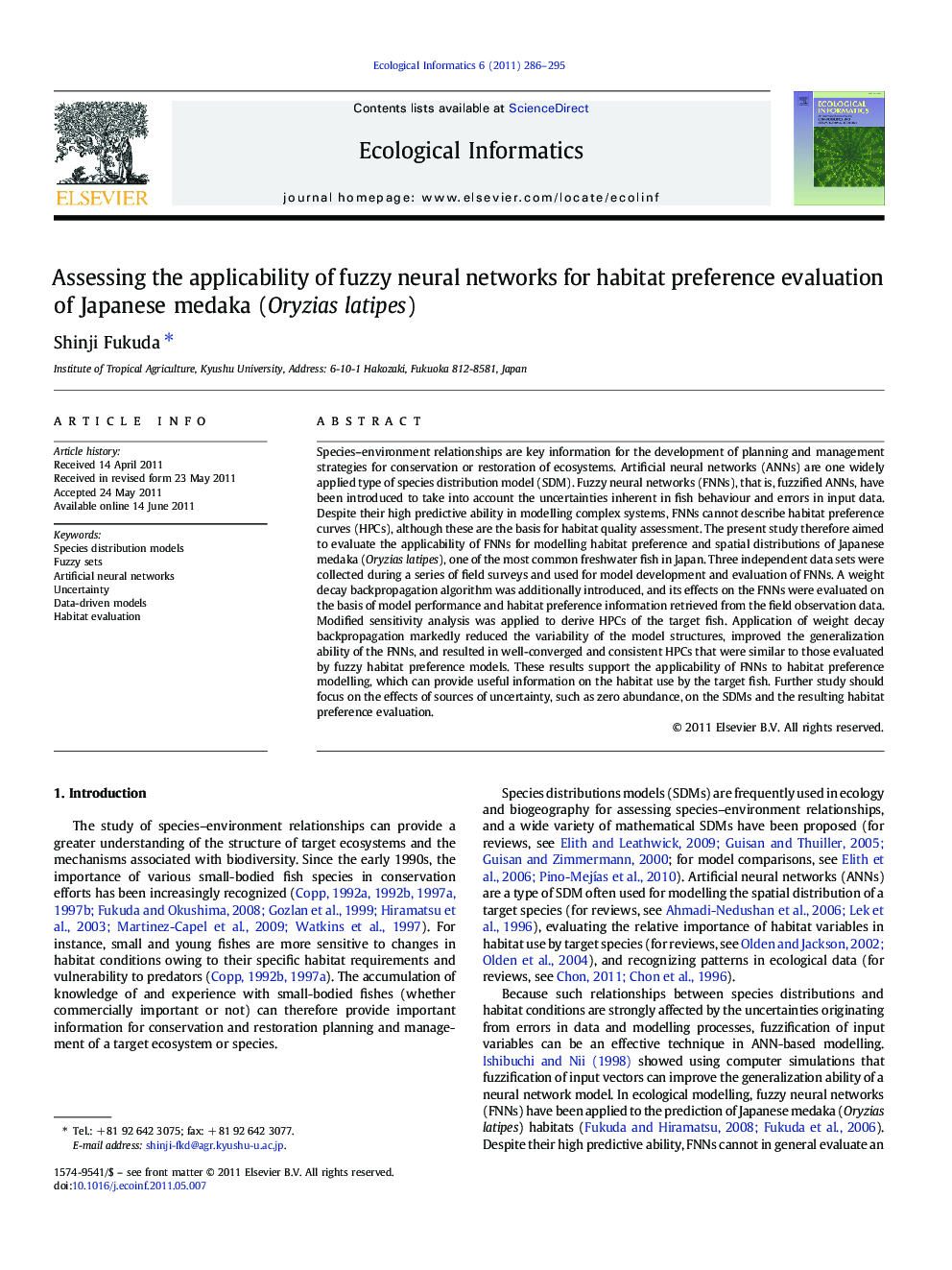| کد مقاله | کد نشریه | سال انتشار | مقاله انگلیسی | نسخه تمام متن |
|---|---|---|---|---|
| 4375134 | 1303244 | 2011 | 10 صفحه PDF | دانلود رایگان |

Species–environment relationships are key information for the development of planning and management strategies for conservation or restoration of ecosystems. Artificial neural networks (ANNs) are one widely applied type of species distribution model (SDM). Fuzzy neural networks (FNNs), that is, fuzzified ANNs, have been introduced to take into account the uncertainties inherent in fish behaviour and errors in input data. Despite their high predictive ability in modelling complex systems, FNNs cannot describe habitat preference curves (HPCs), although these are the basis for habitat quality assessment. The present study therefore aimed to evaluate the applicability of FNNs for modelling habitat preference and spatial distributions of Japanese medaka (Oryzias latipes), one of the most common freshwater fish in Japan. Three independent data sets were collected during a series of field surveys and used for model development and evaluation of FNNs. A weight decay backpropagation algorithm was additionally introduced, and its effects on the FNNs were evaluated on the basis of model performance and habitat preference information retrieved from the field observation data. Modified sensitivity analysis was applied to derive HPCs of the target fish. Application of weight decay backpropagation markedly reduced the variability of the model structures, improved the generalization ability of the FNNs, and resulted in well-converged and consistent HPCs that were similar to those evaluated by fuzzy habitat preference models. These results support the applicability of FNNs to habitat preference modelling, which can provide useful information on the habitat use by the target fish. Further study should focus on the effects of sources of uncertainty, such as zero abundance, on the SDMs and the resulting habitat preference evaluation.
Research highlights
► Fuzzy neural networks (FNNs) were applied to evaluate fish habitat preference.
► Three independent data sets consist of four habitat variables and log-transformed abundance data were used.
► Modified sensitivity analysis was applied to derive habitat preference curves (HPCs) of target species.
► The FNN with weight decay backpropagation showed higher generalization ability and produced consistent HPCs.
► The present results support the applicability of the FNNs to habitat preference evaluation.
Journal: Ecological Informatics - Volume 6, Issue 5, September 2011, Pages 286–295